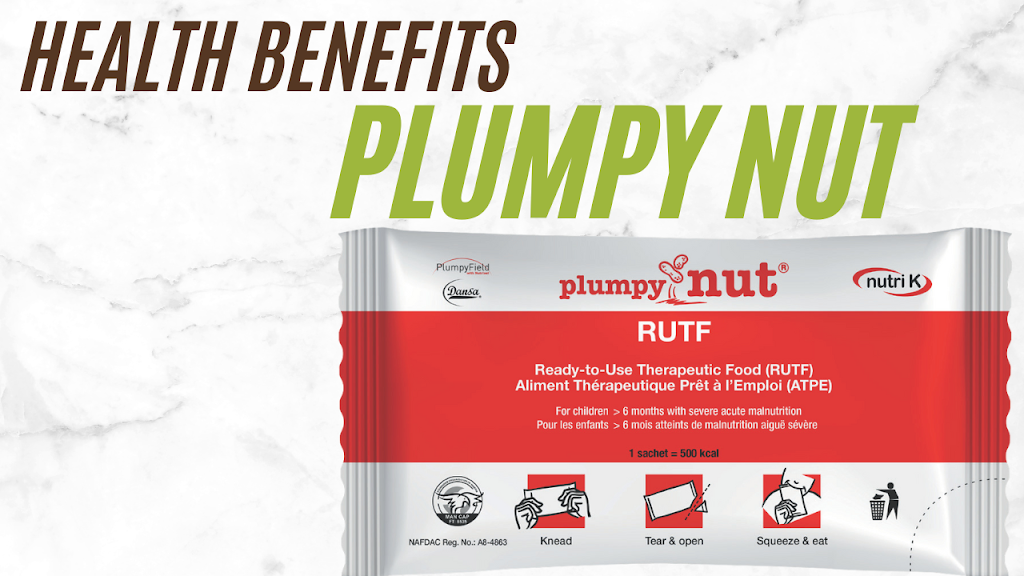 |
| A lady taking care of her skin |
Maintaining healthy and radiant skin is a goal for many
people. While most people focus on facial skincare, it is equally important to
take care of the skin on the rest of your body. In this ultimate guide to body
care, we will provide tips and recommendations for maintaining your skin’s
health and radiance.
1. Understanding Your Skin
Type:
Knowing your skin type is vital before beginning any body care regimen. The best results will come from customizing your regimen to your unique needs, regardless of whether you have sensitive, oily, dry, or mixed skin. To find out your skin type and receive customized suggestions, think about scheduling a consultation with a dermatologist.
2. Cleansing:
The basis of every skincare routine is proper cleaning. For efficient removal of debris, oil, and pollutants without diminishing your skin’s necessary moisture, use a mild, pH-balanced cleanser that is appropriate for your skin type. Always remember to cleanse your body daily, focusing especially on regions like your feet and underarms that are prone to accumulation and sweating.
3. Exfoliation:
Frequent exfoliation is essential for keeping skin smooth and glowing because it encourages cell turnover and removes dead skin cells. To reveal brighter, more youthful-looking skin, use a body brush or mild exfoliating scrub to remove any dullness. Take care not to exfoliate too much since this might cause sensitivity and inflammation.
4. Hydration:
Both inside and outside, hydration is essential for good skin. Staying hydrated internally can be achieved by consuming an ample amount of water over the day. To keep your skin hydrated and preserve its delicate, supple texture, moisturize it every day with a nutritious body lotion or cream. Pay attention to products that include moisturizing components like shea butter, glycerin, and hyaluronic acid in them.
Read More: Tips On Healthy Eating in Nigeria (Delicious Recipes and Nutrition Tips)
5. Sun Protection:
Preventing sunburn, skin cancer, and accelerated aging of the skin are all dependent on shielding your skin from the sun’s damaging UV rays. Every day, even on cloudy days, apply a broad-spectrum sunscreen with an SPF of 30 or higher to all exposed skin areas, such as your hands, neck, and face. Every two hours, especially if you’re outside or participating in aquatic activities, reapply sunscreen.
6. Healthy Lifestyle Habits:
A regular skincare regimen can help maintain the health and shine of your skin, but so can healthy lifestyle choices. Exercise frequently to encourage cleansing and circulation; prioritize stress-reduction strategies like deep breathing and meditation to lessen the negative effects of stress on your skin; and eat a well-balanced diet full of fruits, vegetables, and omega-3 fatty acids to nourish your skin from the inside out.
7. Professional Treatments:
Consider integrating proficient medicines into your body care routine to address explicit worries and improve your outcomes. Medicines, for example, proficient facials, body wraps, and back rubs can give designated advantages like profound purifying, hydration, and unwinding for ideal skin well-being and general prosperity.
The Benefits of body exfoliation for skin radiance
Body exfoliation offers a myriad of benefits for achieving
and maintaining skin radiance:
Removal of Dead Skin Cells:
Dead skin cells build up on the skin’s surface and are removed via exfoliation, exposing younger, more luminous skin underneath. This procedure makes it possible for light to reflect off the skin more uniformly, making the skin appear smoother and more radiant.
Stimulates Cell Turnover:
Exfoliation enhances the skin’s natural process of cell turnover by triggering the skin’s regeneration process. The elimination of old, dull cells makes room for new ones to proliferate, giving the complexion a more radiant, young appearance.
Enhances Absorption of Skincare Products:
Exfoliating the skin makes a smoother surface on which skincare products like treatments, serums, and moisturizers can work their way in deeper and more efficiently. By doing this, the advantages of these products are maximized, improving skin health overall and hydration and nourishment.
Prevents Clogged Pores and Acne:
Regular exfoliation helps
prevent the buildup of dead skin cells, oil, and debris that can clog pores and
lead to acne breakouts. By keeping pores clear and clean, exfoliation promotes
clearer, smoother skin with fewer blemishes and imperfections.
Improves Skin Texture and Tone:
Exfoliation helps refine the
skin’s texture by smoothing rough patches and uneven areas. It can also help
minimize the appearance of fine lines, wrinkles, and hyperpigmentation,
resulting in a more even skin tone and a youthful glow.
Promotes Blood Circulation:
The physical action of
exfoliating stimulates blood circulation to the skin’s surface, which can
improve oxygen and nutrient delivery to skin cells. This increased circulation
helps promote overall skin health and vitality, contributing to a radiant
complexion.
Prepares the Skin for Other Treatments:
Applying exfoliation to the skin before other skincare procedures or treatments increases their efficacy. Exfoliating the skin beforehand guarantees that products like serums, face masks, and professional treatments can be absorbed deeply into the skin for the best effects.
Note, that regular body exfoliation is a valuable step in any
skincare routine, offering multiple benefits for achieving and maintaining skin
radiance. By incorporating exfoliation into your regimen, you can enjoy
smoother, brighter, and more youthful-looking skin from head to toe.
Natural Ingredients that can be used for body
exfoliation
Several natural ingredients can be used for
body exfoliation, providing gentle yet effective ways to slough off dead skin
cells and reveal smoother, radiant skin. Here are some popular options:
Sugar: Sugar is a gentle exfoliant that helps remove dead
skin cells without being too abrasive. It dissolves easily in water, making it
suitable for sensitive skin. You can use granulated sugar or brown sugar as a
base for DIY body scrubs.
Salt: Sea salt or Epsom salt are excellent natural exfoliants
that help cleanse pores and detoxify the skin. Salt scrubs are particularly
beneficial for oily or acne-prone skin, as they can help balance oil production
and prevent breakouts.
Oatmeal: Oatmeal is a soothing and gentle exfoliant that is
suitable for all skin types, including sensitive skin. It helps calm
inflammation, moisturize the skin, and gently remove dead skin cells. Ground
oatmeal can be mixed with water or other ingredients to create a nourishing
exfoliating paste.
Coffee Grounds: Coffee grounds are rich in antioxidants and
caffeine, making them an excellent choice for stimulating circulation and
reducing the appearance of cellulite. They provide gentle exfoliation while
leaving the skin feeling soft and smooth.
Coconut Oil: Coconut oil is not only moisturizing but also
has natural exfoliating properties. When mixed with sugar or salt, it creates a
luxurious scrub that helps remove dead skin cells and hydrate the skin at the
same time.
Related Post: The Power of Superfoods: How To Boost Your Health with These Nigerian Superfoods
Baking Soda: Baking soda is a gentle exfoliant that helps
balance the skin’s pH levels and remove impurities. It can be mixed with water
or coconut oil to create a paste for exfoliating the body.
Fruit Enzymes: Fruits like papaya, pineapple, and kiwi
contain natural enzymes (papain, bromelain) that gently exfoliate the skin by
breaking down dead skin cells. These enzymes are often found in natural
exfoliating masks and peels.
Honey: Honey is a natural humectant that helps attract and
retain moisture in the skin. It also has antimicrobial properties that help
cleanse and exfoliate the skin gently. Mixing honey with sugar or oatmeal
creates a hydrating and exfoliating scrub.
Note: Any allergies or sensitivities you may have must be taken into consideration while utilizing natural substances for body exfoliating. Before using any new substance, make sure it doesn’t irritate the skin or have any negative effects by doing a patch test on a tiny section of it. To seal in moisture and maintain soft, supple skin, don’t forget to moisturize your skin after exfoliating.
Side Effects of Body Exfoliation
Although there are many skin-benefiting benefits to natural body exfoliation, it’s important to be aware of any potential negative consequences, particularly if done incorrectly or if your skin is sensitive. The following are some potential adverse effects to be aware of:
Skin Irritation:
Over-exfoliation
or using ingredients that are too harsh for your skin type can lead to
irritation, redness, and inflammation. This can cause discomfort and may
exacerbate existing skin conditions such as eczema or rosacea.
Dryness:
Exfoliating too frequently
or using ingredients that strip away the skin’s natural oils can lead to
dryness and dehydration. This can result in flakiness, tightness, and
discomfort, especially for individuals with already dry or sensitive skin.
Increased Sensitivity:
The skin’s sensitivity to additional skincare products and external elements, such sunshine and inclement weather, may be momentarily increased after exfoliation. This may increase the skin’s vulnerability to allergic responses, sunburn, and inflammation.
Breakouts:
Over-exfoliation can occasionally damage the skin’s natural protective layer, causing the creation of more oil and possibly outbreaks. If you have acne-prone skin or use abrasive exfoliants, this is more likely to happen.
Allergic Reactions:
Some natural
exfoliating ingredients, such as nuts, fruits, and essential oils, may cause
allergic reactions in certain individuals. It’s essential to perform a patch
test before using any new ingredient to check for potential allergies.
Skin Damage:
Using improper
exfoliation techniques or applying too much pressure can damage the skin’s
surface, leading to micro-tears, scratches, and abrasions. This can compromise
the skin’s barrier function and increase the risk of infection and
inflammation.
Increased Photosensitivity:
Exfoliating
can make the skin more susceptible to damage from UV radiation, leading to
sunburn and premature aging. It’s crucial to apply sunscreen regularly,
especially after exfoliation, to protect the skin from harmful UV rays.
Keynote: Exfoliating gently, avoiding over-exfoliation, and selecting natural substances appropriate for your skin type are all important ways to reduce the possibility of adverse consequences. For individualized guidance and care, stop using the product if you start to experience ongoing irritation or other negative reactions. See a dermatologist.
Conclusion
It is possible to attain and preserve healthy, glowing skin by combining the appropriate skincare routines and lifestyle choices. You can have radiant skin from head to toe by knowing your skin type, cleaning like an expert, exfoliating frequently, moisturizing sufficiently, shielding from the sun, leading a healthy lifestyle, and thinking about getting professional treatments.
Always remember that consistency is the key, so make the time to follow a regular regimen for body care and enjoy years of radiant, gorgeous skin.
Related Articles




